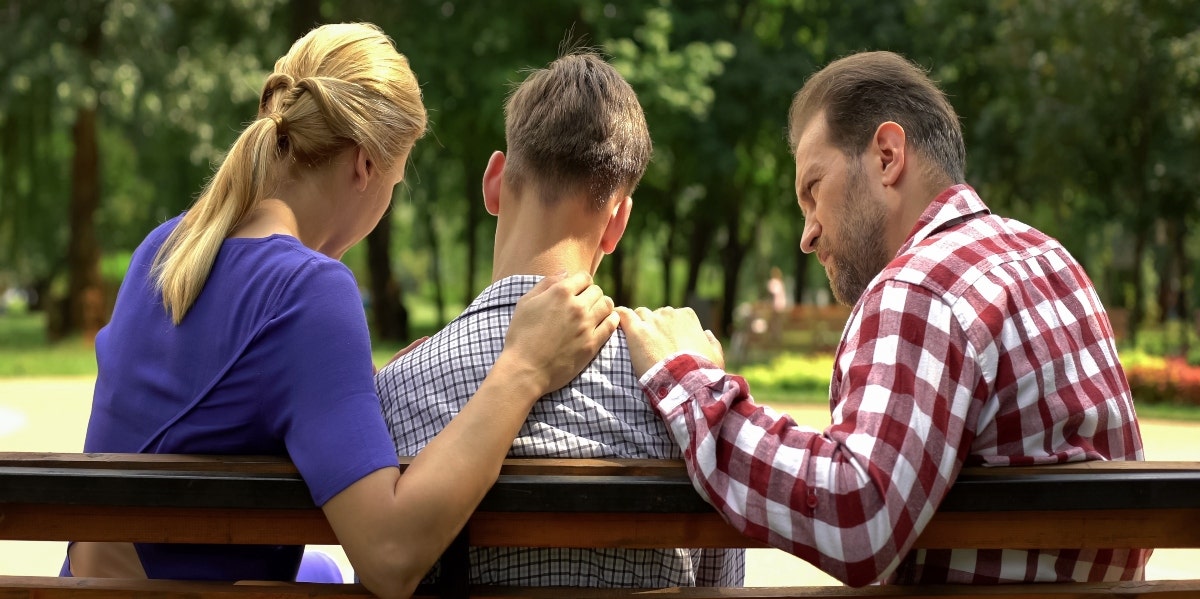'Their Tanks Are Empty' — Children's Hospital Colorado Declares A Pediatric State Of Emergency
Our kids are in crisis.
 Motortion Films / Shutterstock
Motortion Films / Shutterstock Children's Hospital Colorado is declaring a pediatric mental health state of emergency in response to the growing need for behavioral health services.
Providers have seen a sharp increase in kids reporting anxiety, depression, and feelings of isolation and social disconnectedness which has only been exacerbated by social distancing and pandemic restrictions.
Colorado Children's mental health state of emergency
The state of emergency is the first of its kind in the 117-year history of the hospital system.
"I've been in practice for over 20 years in pediatrics and I’ve never seen anything like the demand for mental health services we’ve seen at Children’s Colorado in the past 15 months," said David Brumbaugh, MD, Chief Medical Officer for Children’s Colorado.
“Our kids have run out of resilience — their tanks are empty."
Suicide is a leading cause of death for Colorado children.
Jena Hausmann, CEO of the hospital, shared a grim forecast that suicide was rapidly becoming the number one cause of death for Colorado children, beginning with kids as young as 10.
She said the emergency transport team sees 3-4 suicide attempts per week.
“We are seeing our pediatric emergency departments and our inpatient units overrun with kids attempting suicide and suffering from other forms of major mental health illness," Hausmann added.
Children’s Colorado has seen a 90% increase in demand for behavioral health treatment in the past two years.
Across the state, counties are reporting similar increases but are lacking the services to adequately provide for children.
Pediatric mental health issues won’t end when the pandemic does.
Hospital officials don’t believe this problem will go away as the world returns to normal. Mental health issues may be one of the longest-lasting impacts of the pandemic.
Jenna Glover, MD, child psychologist and Director of Psychology Training at Children's Colorado said hopelessness has become a primary indicator of suicide ideation in children.
"Despite things getting better in terms of COVID-19, kids have dealt with chronic stress for the past year that has interrupted their development," Dr. Glover said.
"Now kids are asked to be starting back into life again, they don't have the resources to do that, they're burnt out and they feel so behind they don't know how to catch up."
The mental health state of emergency will get patients the help they need.
By prioritizing the mental health crisis, Children’s Hospital Colorado intends to meet the growing demand for mental health services.
The hospital has plans in place to increase its mental health inpatient, outpatient, and day services by more than 50% by March 2022.
The team is also working to expand their Eating Disorder Treatment Program, Intensive Inpatient Unit, Partial Hospitalization Program and Neuropsychiatric Special Care Program, which treats Autistic children who are in crisis.
However, the healthcare providers are concerned that these measures, while necessary, deflect from the need for preventative care for complex issues like eating disorders and mental health support.
"We can’t depend on building beds to get us out of this," said Michael DiStefano, MD, Chief Medical Officer for Children's Colorado's Southern Region. "If we are building acute beds, we are losing the battle against suicide and behavioral health problems with our teens. We need to be intervening prior to the crisis."
Ideally, children wouldn't ever need to access the services the hospital is providing. Unfortunately, that is not the world we are living in.
The hospital hopes Colorado will work to provide school-based mental health supports by training educators to be on the frontline of the crisis before children have to access hospital services.
Alice Kelly is a writer living in Brooklyn, New York. Catch her covering all things social justice, news, and entertainment. Keep up with her Twitter for more.

